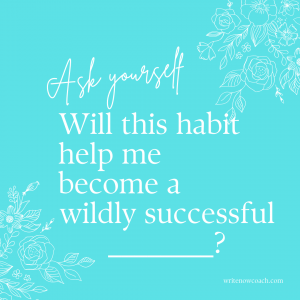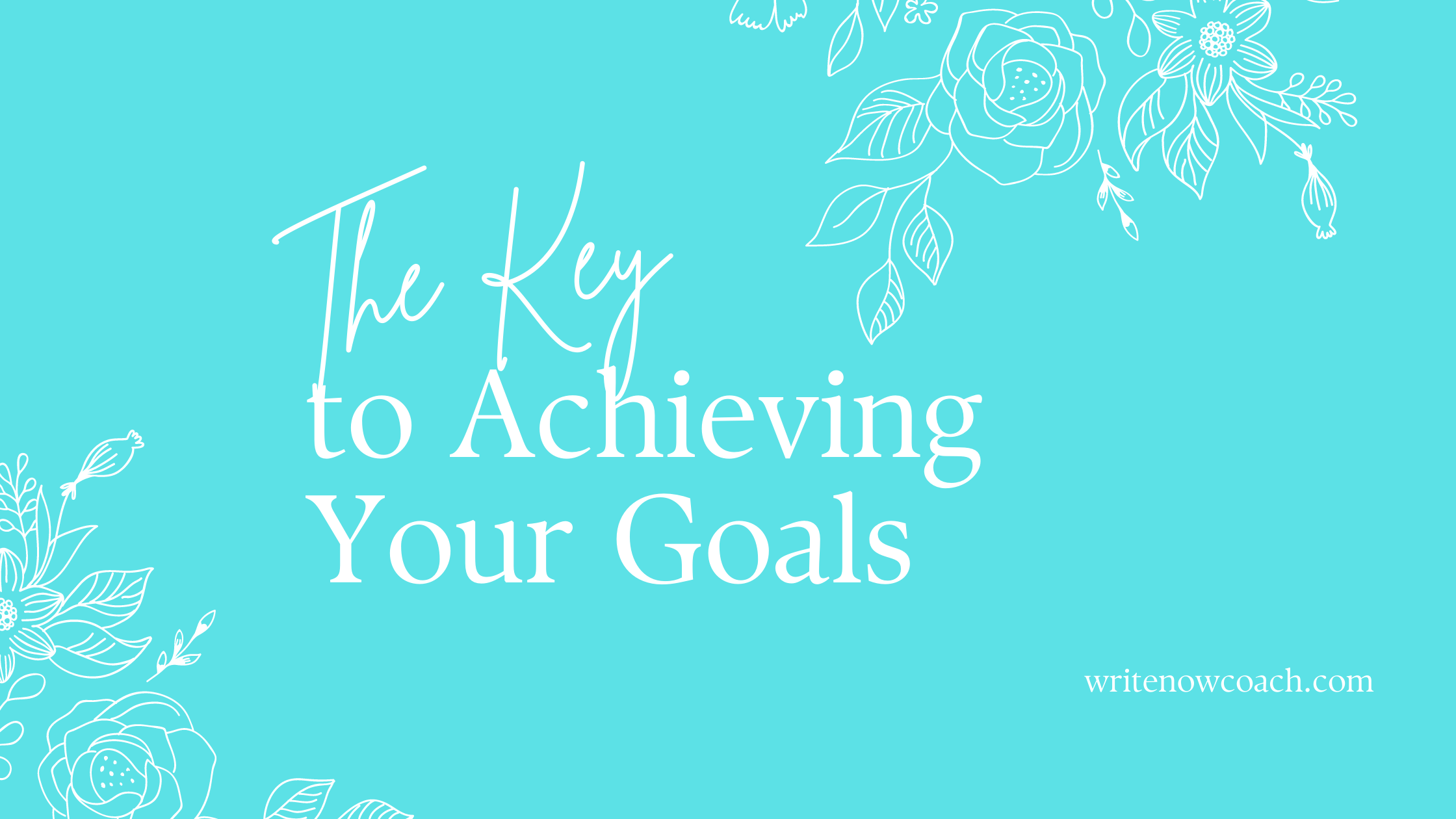The Key to Achieving Your Goals
December 14. 2021
Note From Rochelle
Dear Writers,
In the New Year, I am planning on offering two groups to help you get work done. The first, The Writing Goddesses group, gives you the opportunity to have your work read and commented on every other week by me and your colleagues. Our meetings give you the opportunity to stay accountable to your goals and get help when you get off track.
The second group will focus on helping you overcome distraction and procrastination, sustain focus, and finish work. This is ideal for writers who want to complete projects, but it can be helpful for anyone who struggles with distraction or focus.
If you are interested in either group, please respond to this email. Let me know what group interests you, what you hope to get out of it, and what your availability is.
Last week’s giveaway is wrapping up soon. You could win one set of books for young activists. Check it out at the blog: https://writenowcoach.com/books-to-inspire-activism/
Today’s tip talks about a new way to approach your New Year’s goals. Enjoy!
Happy writing,
Rochelle, the Write Now! Coach
The Key to Achieving Your Goals
By Rochelle Melander
I meet with a friend every week to stay accountable to our goals. She mentioned that James Clear, author of Atomic Habits, had said this about habits:
“Your identity emerges out of your habits. Every action is a vote for the type of person you wish to become.”
Friends, this idea was a game changer for me. Since hearing and reflecting on this idea, I have put in more time on my writing than I have in months.
As we wrap up another year (how can that be possible?) and start dreaming about a new one, it’s tempting to set a bunch of goals and resolutions.
We know how that goes. Most people give up on their New Year’s resolutions by February 1st. But do not fear! You can make changes that stick, changes that help you achieve your goals. You just need to start in a different place. Understanding who we want to be (our identity) might just be the key to creating lasting change. Here’s how.
Step One: Define your identity
For James Clear, “Identity change is the North Star of habit change.” (p. 40) We do what we do because of who we believe we are. So, instead of starting your New Year’s planning by thinking about your goals, think about who you want to be. The easiest way to do this is to ask yourself, “Who achieves the goals I want to achieve?”
- If you want to write a book, your identity is a writer.
- If you want to run a marathon, your identity is an athlete.
- If you want to be a famous guitar player, your identity is a musician.
Step Two: Consider practices and habits
Now that you know the identity you want to embody, ask yourself the question: What are the habits of wildly successful [insert identity here]? You may already have some ideas about how successful writers, athletes, or musicians behave. But if you don’t, read up on them. Check out their Twitter profiles or read books like The Creative Habit by Twyla Tharp. Learn the practices or habits that make them successful. Create a list of these practices.
Step Three: Choose a practice
Compare the practices on the list to the tasks you do every day. You’re probably already doing some of the practices you discovered. But there will be some key habits that you don’t do. Choose the one practice you think will make the biggest difference in your life.
If you’re a writer, that might mean taking time to develop ideas, choosing to write every day, participating in a critique group, or submitting your work.
Step Four: Make it a habit
Here’s the tough part of the whole “New Year, New You” thing: taking that wish (I want to be a writer) and turning it into something you do every day. Here are the four ways that Clear tells readers to turn a practice into a habit:
- Make it obvious. The best way I know to do this is to habit stack (his term): Attach your new practice to an established habit. What existing habit can you “attach” your new habit to? For example, when I wanted to add the practice of “idea gathering” to my day, I tacked it onto my morning journaling practice. All I had to do was set my writer’s idea notebook next to my journal. As soon as I finished writing in my journal, it was easy to pick up my idea notebook and play with ideas.
- Make it attractive. We’re more likely to do the things we perceive as easy and fun. Psychologists believe that if we tie our temptations to our tasks, we’ll look forward to doing them. This might be as simple as having a great cup of coffee while you write or listening to your favorite podcast while you run. (Pro Tip: In order for this to work, enjoy this treat only while you are practicing your habit.)
- Make it easy. We have more difficulty doing tasks when there are obstacles in our way. (Duh!) Make it easy for you to succeed at your task. If you want to run first thing in the morning, keep your running clothes next to your bed. If you want to eat healthier lunches, cut up your vegetables on Sunday—so that you can easily grab them throughout the week. If you want to write while drinking your morning coffee, set out your notes the night before. Think about where you will start ahead of time. It’ll be much easier to get going.
- Make it satisfying. Find a way to reward yourself for doing the task. I track my writing in a bullet journal. That helps me see my progress. You might choose to reward yourself in a more tangible way. Maybe if you make it to five writing sessions in a row, you can treat yourself to a café coffee.
Step Five: Review
After you’ve spent a few weeks living out of your new identity, review how it’s going. If you’re having difficulty keeping your new habit, do some brainstorming.
- Are you missing any of the four key ingredients of a habit?
- Is there something that might work better?
If you’re doing well with your habit, you might consider if there’s another practice you’d like to add.
Finally, you might also consider if there’s anything you’d like to stop doing. For example, when I decided to level up my writing, I stopped taking low-paying writing assignments. They took too much time away from the work that mattered to me.

Wrap up
Try this out and let me know how it goes! I’m hoping we’ll start a revolution of people who set AND achieve their goals.
If you need a little help, think about joining one of my accountability groups for the spring. The Writing Goddesses group is here: https://writenowcoach.com/writing-goddess-group/
The ADHD Accountability Group information is coming soon. Message me if you’re interested: https://writenowcoach.com/contact/
RESOURCE: Atomic Habits James Clear















